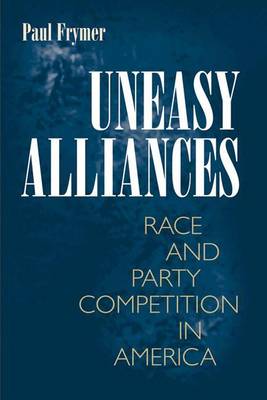Princeton Studies in American Politics: Historical, Internat
1 primary work
Book 114
Paul Frymer argues provocatively that two-party competition in the United States leads to the marginalization of African Americans and the subversion of democracy. Scholars have long claimed that the need to win elections makes candidates, parties, and government responsive to any and all voters. Frymer shows, however, that party competition is centered around racially conservative white voters, and that this focus on white voters has dire consequences for African Americans. As both parties try to attract white swing voters by distancing themselves from blacks, black voters are often ignored and left with unappealing alternatives.African Americans are thus the leading example of a 'captured minority'. Frymer argues that our two-party system bears much of the blame for this state of affairs. Often overlooked in current discussions of racial politics, the party system represents a genuine form of institutional racism. Frymer shows that this is no accident, for the party system was set up in part to keep African American concerns off the political agenda.Today, the party system continues to restrict the political opportunities of African American voters, as was shown most recently when Bill Clinton took pains to distance himself from African Americans in order to capture conservative votes and win the presidency.
Frymer compares the position of black voters with other social groups-gays and lesbians and the Christian right, for example-who have recently found themselves similarly 'captured.' Rigorously argued and researched, "Uneasy Alliances" is a powerful challenge to how we think about the relationship between black voters, political parties, and American democracy.
Frymer compares the position of black voters with other social groups-gays and lesbians and the Christian right, for example-who have recently found themselves similarly 'captured.' Rigorously argued and researched, "Uneasy Alliances" is a powerful challenge to how we think about the relationship between black voters, political parties, and American democracy.
